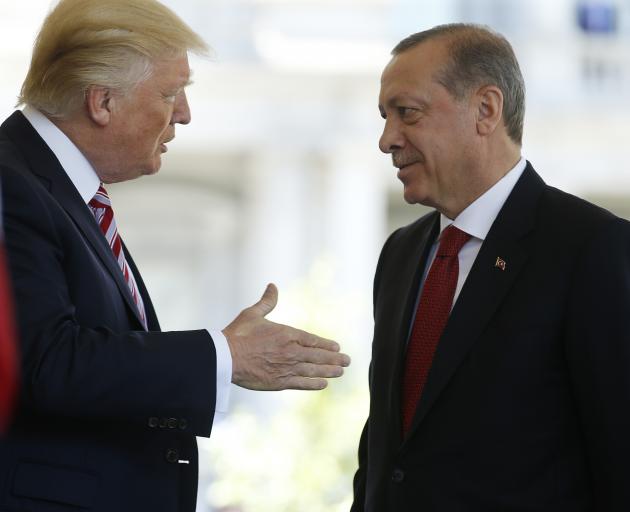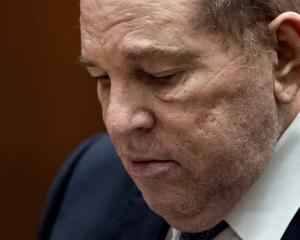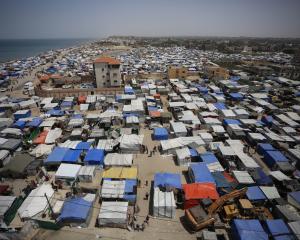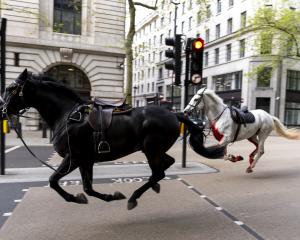
The leaders of Turkey and the United States touted strong ties between the NATO allies on Tuesday but the Turkish president emphasised his country will not accept Syrian Kurdish fighters in the region while stopping short of directly criticising a US decision to arm them.
President Donald Trump lauded visiting Turkish President Tayyip Erdogan at the White House as an important ally in the "fight against terrorism" and did not mention Erdogan's domestic crackdown after last year's failed coup attempt.
"We've had a great relationship and we will make it even better," Trump said in a joint appearance with Erdogan.
Erdogan said his visit would "mark a historical turn of tide" and hailed "outstanding relations" between the nations. It was an especially positive tone considering the tensions over Washington's decision to arm the Syrian Kurdish YPG militia that Ankara regards as an extension of the outlawed Kurdistan Workers Party (PKK).
"There is no place for the terrorist organizations in the future of our region," said Erdogan, speaking through a translator.
He added that the activities of the YPG and its political arm in the region, the PYD, "will never be accepted."
US officials on May 9 disclosed Trump's approval of plans to supply the YPG as it advances toward the Islamic State stronghold of Raqqa in Syria.
Turkey has been a crucial partner in the US-led coalition against Islamic State forces. The US alliance with Turkey has proven pivotal in the battle against Islamic State in Syria, providing the coalition with access to Turkey's Incirlik air base to wage strikes against the militants.
Erdogan had pledged to use the White House meeting to try to get Trump to change course on the YPG. Ankara regards the YPG as an extension of the PKK, which has fought an insurgency in southeastern Turkey since 1984 and is considered a terrorist group by the United States, Turkey and Europe.
"We support Turkey in the ... fight against terror and terror groups like ISIS and the PKK, and ensure they have no safe quarter, the terror groups," Trump said, using an acronym for Islamic State. "We also appreciate Turkey's leadership in seeking an end to the horrific killing in Syria."
The YPG, or People's Protection Units, effectively serves as the military of the autonomous Kurdish-led regions that emerged in northern Syria with the retreat of state authority in 2011 that accompanied the outbreak of civil war.
The United States sees the YPG as distinct from the PKK and as a valuable partner in the fight against Islamic State.
Trump and Erdogan both emphasised the positive. "The relationship that we have together will be unbeatable," Trump said.
The meeting came amid an uproar in Washington over reports that Trump disclosed sensitive information regarding Islamic State to senior Russian officials during a White House meeting last week.
Trump, who took office in January, has sought to reach out to Erdogan, and was criticised by some in the United States for congratulating the Turkish president on his contested win in a referendum on constitutional changes that gave him sweeping new powers.
The administration of Trump's predecessor, Democrat Barack Obama, had criticized Erdogan's crackdown on the Turkish press and academia after a failed coup attempt in July 2016. Tens of thousands of Turkish citizens have been detained in its aftermath and some Erdogan supporters tried to blame the United States for the coup.
But during their appearance on Tuesday, Trump made no mention of Erdogan's record on dissent and free speech, although they have been areas of concern for some Western leaders.
Erdogan's visit on Tuesday was further complicated by Turkey's calls for the United States to take steps to extradite Turkish cleric Fethullah Gulen, who has lived in self-imposed exile in Pennsylvania. Erdogan blames Gulen supporters for the attempted coup. Gulen has denied involvement in the coup and remains in the United States.
Erdogan's spokesman Ibrahim Kalin said in a statement the two leaders discussed "possible steps against FETO," referring to what Ankara calls the "Gulenist Terror Organisation," a term it uses to describe the Gulen's network. Kalin did not specify exactly what steps they discussed.
The Turkish government has also raised concerns about a US criminal case against Reza Zarrab, a dual Turkish-Iranian national, arrested last year and charged with helping Iran process millions of dollar in transactions that violated US sanctions against Tehran.












